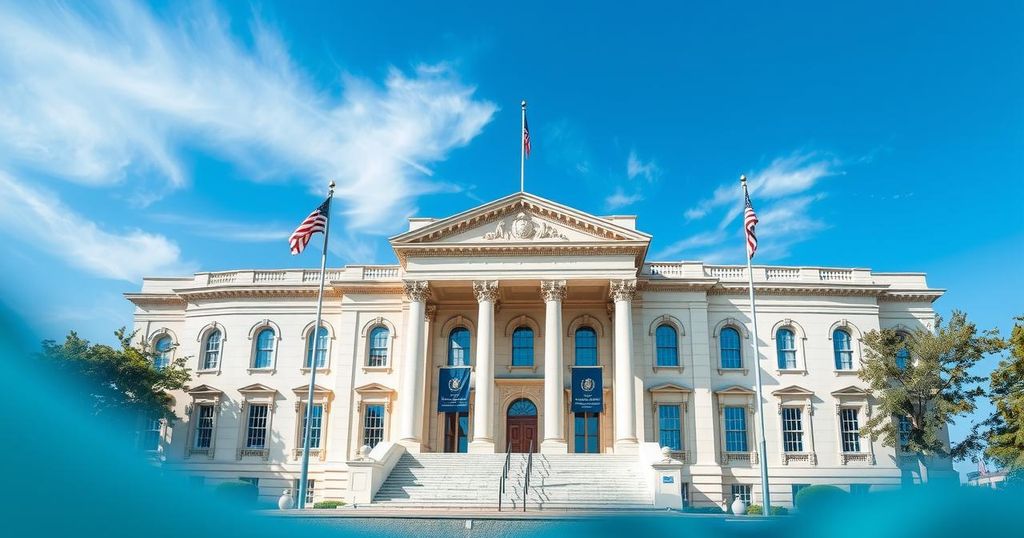Richard L. Armitage, 79, Former Deputy Secretary of State, Passes Away

Richard L. Armitage, who served as Deputy Secretary of State from 2001 to 2005, passed away at the age of 79 due to a pulmonary embolism. He was a significant figure during the Iraq War, known for his involvement in the Valerie Plame leak scandal. Armitage was a prominent member of the ‘Vulcans,’ advising President Bush. His career spanned three Republican administrations, and he later expressed regret regarding certain government actions. He is survived by his wife and children.
Richard L. Armitage, 79, passed away due to a pulmonary embolism, as confirmed by the consulting company he founded, Armitage International, in Arlington, Virginia. He served as the Deputy Secretary of State from 2001 to 2005, a critical period marked by the aftermath of the 9/11 attacks and the initiation of wars in Afghanistan and Iraq.
A Naval Academy graduate and veteran of the Vietnam War, Mr. Armitage worked within foreign policy under three Republican presidents, embodying a robust American international presence. He was notably part of a group called “the Vulcans,” which advised President George W. Bush during his presidency.
Mr. Armitage gained notoriety for being the source of a leak that revealed the identity of C.I.A. operative Valerie Plame Wilson in 2003, amid complications surrounding the Iraq War and allegations regarding weapons of mass destruction. This incident led to significant media coverage and a special prosecutor’s investigation.
The leak followed Mr. Wilson’s op-ed, in which he criticized the Bush administration’s claims regarding Iraq’s attempts to procure uranium. Mr. Armitage cooperated with the subsequent investigation and revealed his role three years later, describing the leak as unintentional and expressing his remorse.
His career in government began during the Reagan administration, eventually serving key roles during the Bush administration as the world reacted to the 9/11 attacks. Mr. Armitage was known to have engaged with foreign leaders, including Pakistani General Pervez Musharraf, purportedly issuing threats for non-compliance, which he later denied.
In November 2004, after President Bush’s re-election, Mr. Armitage resigned from his post alongside Secretary Powell. In later years, he publicly condemned the C.I.A.’s use of waterboarding on detainees and expressed regret over his governmental decisions during that time.
Born on April 26, 1945, in Wellesley, Massachusetts, Mr. Armitage grew up in Atlanta and graduated from St. Pius X High School before attending the Naval Academy. He showed significant dedication during his military service and continued to influence U.S. foreign policy throughout his career.
Post-government, Mr. Armitage founded his consulting firm and remained active in political discourse, publicly supporting Democratic candidates in recent presidential elections. He is survived by his wife, Laura, eight children, and numerous grandchildren.
While there was a correction regarding an interview source, Mr. Armitage’s legacy in American politics is marked by his commitment to national security and foreign affairs during turbulent times.
Richard L. Armitage’s passing marks the end of a significant chapter in American foreign policy, especially during times of great international strife. His contributions as deputy secretary of state, involvement in various administrations, and the controversies he faced illustrate the complexities of governance during pivotal moments in history. His legacy, shaped by both achievements and missteps, leaves a lasting impact on U.S. diplomacy and national security discourse. Armitage’s early service and later criticisms reflect a nuanced understanding of the moral dilemmas faced by policymakers. He is survived by his family, representing a personal chapter that complements his political narrative. While his career was marred by controversy, his understanding of international relations and public service remains a critical analysis point for current and future leaders.
Original Source: www.nytimes.com






